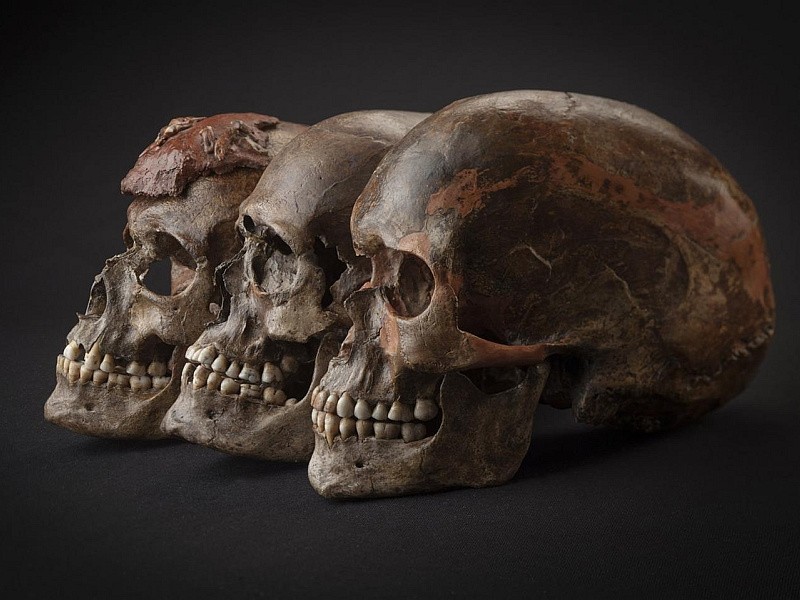
Ancient DNA left over from the last ice age shows that all Europeans, at one time, were descended from early humans living in Belgium. Analysis of genomes also suggested our distant ancestors underwent significant evolutionary changes during the Ice Age and a few thousand years following that frigid era.
A total of 51 genetic samples were examined in the latest study, a vast improvement in understanding compared with the four examples available previous to now.
Temperatures began to warm in Europe roughly 19,000 years ago, freeing the continent of widespread ice sheets. As the frozen cover receded, human populations from modern-day Spain migrated toward the north. Approximately 5,000 years after that time, a second group of people began to travel from southeastern Europe into northern and western regions of the continent. These migrants from Greece and Turkey displaced the earlier population.
The last major ice age peaked between 35,000 and 19,000 years before the modern day, coming to an end around 12,000 years ago. At the height of this period, ice cover reached as far south as northern France.
"The ability to obtain genome-scale data from ancient bones is a new technology that's only been around for the last five or six years. It's a new scientific instrument that makes it possible to look at things that have not been looked at before," said David Reich of the Harvard Medical School.
Ancient DNA often contains a distinctive error in which a segment of cytosine is replaced by uracil. This change is rarely seen in modern chains of genetic codes. Researchers used this fact to their advantage, examining only DNA that exhibited this error. This allowed investigators to analyze samples of nearly-pure ancient genetic code.
Modern humans first entered Europe roughly 45,000 years before the modern age. This migration spelled the end of Neanderthals, which had previously inhabited the continent. All of the ancient Europeans examined in this study exhibited lineages that traced back to a population that lived 37,000 years ago in a region that would later be known as Belgium. This group was later displaced, and a new population arrived in Europe 14,000 years ago, traveling from the east.
Analysis of the ancient DNA and study of what the genetic code can tell us about the history of ice age humans in Europe was published in the journal Nature.
![Apple Watch Series 10 [GPS 42mm]](https://d.techtimes.com/en/full/453899/apple-watch-series-10-gps-42mm.jpg?w=184&h=103&f=9fb3c2ea2db928c663d1d2eadbcb3e52)



